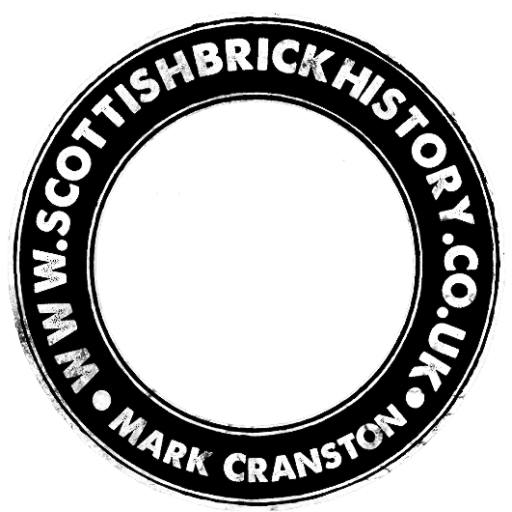Dundee Brick and Tile Company, KwaZulu-Natal, South Africa.
04/11/1899 – St. Andrews Citizen – … Coincidently, with the battle of Dundee, and the sad death of General Symons there, it is interesting to note that the founder of Dundee is a Scotsman. This gentleman – Mr Peter Smith – is a native of Forfarshire, being born at Holemill, Kirkbuddo, in the parish of Inverarity, his father having been a tenant of Holemill for upwards of two ‘nineteens’. He went out to South Africa in 1847. He is now 70 years of age. About 13 years ago Smith acquired from the government the right to lay off a township in Natal, which he named Dundee, and which has become the thriving town that has been the centre of the exciting events of the past week.
24/04/1991 – Dundee Courier – A letter from South Africa. Readers may recall correspondence in this column about the foundation of the Dundee in South Africa. Now I have received a letter from Mrs Sheila Henderson, chairman of the town’s Talana Museum Committee, requesting readers’ help in expanding information about its Scottish founders. “My sister-in-law, Mrs Patrick Henderson of Lawton, Coupar Angus, has handed me a cutting from the Craigie Column,” she writes. “It refers to a Mr A. P. Hall of Tealing who visited his step-brother J. A. Mann in Dundee, South Africa, during the Anglo-Boer War of 1899. This museum is housed on the farm of the Peter Smith you mention and is dedicated to the Scottish pioneers who founded the town and developed its major industries, coal mining, brickmaking and building. Peter Smith and his elder brother Tom came from Inverarity (Angus, Scotland); Ann Craighead, Peter’s wife, and relations of hers, the Patersons, came from Dundee. The families are still in the district. The Masonic Hall, which James Mann built, has just been restored and declared a National Monument. It is the last surviving pre-Boer War theatre in Natal and has a very interesting and unusual history. The old Mann family home still exists and has recently been restored and we hope may also be saved as a National Monument. It faces Talana House across the valley where the early brickmaking fields were. The Dundee Brick and Tile Co face bricks were of excellent quality and Mann was among the five masons who built the town’s reputation for first-class construction. Corobrik, a subsidiary of the Anglo-American Corporation, donated the very fine Industrial Museum building at Talana in tribute to three Scottish craftsmen”. Mrs Henderson continues: “We were delighted to read of Mr Hall’s photograph album being preserved and would be interested to know exactly what it contains. It could be of immense value to our research into this remarkable colonial pioneer community. Perhaps his grandson would be kind enough to photostat copies for us to see? The South African Dundee, founded in 1882 by Peter Smith and his Scottish friends and relations, knew phenomenal growth and earned the name of ‘Coalopolis’ in its first decade. Thomas Dewar and William and James Maconochie are names that were prominent. “More information about all these personalities is urgently required and if your readers can help us, we shall be very grateful. We should appreciate help in preserving the memory of these Scots of Dundee, South Africa. The address of the Talana Museum is Private Bag 2024, Dundee, Natal, 3000, South Africa.
Founders and founding of Dundee – The four men credited with the founding of Dundee are Peter Smith, his son William Craighead Smith, Dugald McPhail, and Charles Willson.
The township of “Dundee Proper” was established by Peter Smith in 1882, from 1,000 acres of his farm “Dundee”. This township was supplemented by land contributed by Dugald McPhail (Peter Smith’s son-in-law), Peter’s son William Craighead Smith, and Charles Willson. In the same year George Sutton laid out a township called “Dundee” on part of his farm “Coalfields, adjoining “Dundee Proper.” The township of “Dundee Extension” was added later. In 1896 all three townships were consolidated into the Borough of Dundee.
Peter Smith arrived in Natal in 1859, having emigrated from Mole Hill farm in Fofarshire, near Dundee, Scotland. His brother Thomas had arrived in Natal (via Australia) in 1855, and had been granted a 3,000 acre farm in Northern Natal, which he named “Dundee”. Peter Smith and his wife Ann (nee’ Craighead) joined Thomas Smith on Dundee farm in 1864. Peter discovered coal on the farm, about 500 metres from the family homestead on Talana Hill. He began coal mining, and by 1878 was employing Cornish miners and sending coal by wagon for sale in Pietermaritzburg.
Dugald MacPhail was another Scot, from Argyllshire, and Charles Wilson was a Londoner. Following its founding, Dundee affairs were for many years dominated by the triumvirate of Smith, MacPhail and Willson.
The town of Dundee prospered in the early 1900s, attracting industries such as Union Glass Works at Talana and Dundee Brick & Tile, and seeing an expansion of mining activity and commerce generally. The Holy Rosary Convent was established, the high school expanded, and attractions were established such as “Atwell’s Premier Bio” and the Municipal Swimming Bath. By the years between World Wars 1 and 2 Dundee was boasting that it was the centre of the coal mining industry in Northern Natal, and it become an attractive country town with a sound economy, and pleasant residential areas and amenities.
Dundee’s centenary is commemorated in the publication “Where the Thunder Rolls – A Centenary History of Dundee, Natal.”




